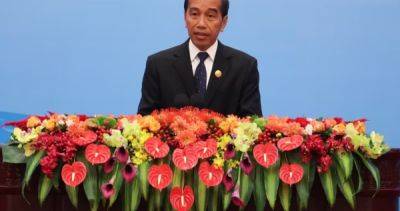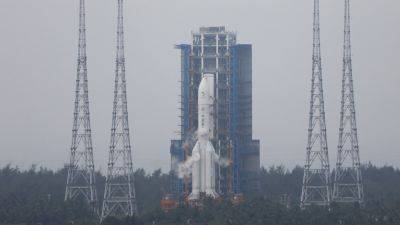China launches satellites to rival SpaceX’s Starlink in boost for its space ambitions
Editor’s Note: Sign up for CNN’s Meanwhile in China newsletterwhich explores what you need to know about the country’s rise and how it impacts the world.
Hong Kong CNN —China has taken a major step forward in its bid to create a rival to SpaceX’s Starlink this week by launching the first of what it hopes will be a constellation of 14,000 satellites beaming broadband internet coverage from space.
Eighteen satellites were blasted into low Earth orbit (LEO) on Tuesday in the inaugural launch for the government-backed Qianfan, or Spacesail, constellation, state media reported.
The constellation – hailed in domestic media as China’s answer to US-based SpaceX’s Starlink – aims to join a handful of planned or operational large-scale space projects from providers in various countries offering broadband satellite internet services.
Leading that pack is Starlink, which has more than 6,000 satellites in orbit and ambitions to expand to as many as 42,000. It is widely expected to remain the dominant player in years to come, given its head start and advanced launch capabilities.
While most people accessing the internet do so through cables and other ground-based infrastructure, satellite internet connection has emerged as an important service for rural, under-resourced and disaster-hit areas. It’s also seen as key for expanding technologies like autonomous cars and other internet-enabled devices – industries that China wants to lead.
Qianfan, also known as G60 Starlink, is among three planned Chinese mega constellations that could see the country’s firms launching nearly 40,000 satellites into low Earth orbit (defined as no more than 1,200 miles above the planet) in the coming years. So-called mega constellations refer to







